Mary Yoke
Healthy IU Instructor
In addition to her role as a Healthy IU instructor, Mary Yoke is a lecturer in the School of Health and Human Sciences in the Department of Kinesiology at IU Indianapolis.
Mary Yoke
Healthy IU Instructor
In addition to her role as a Healthy IU instructor, Mary Yoke is a lecturer in the School of Health and Human Sciences in the Department of Kinesiology at IU Indianapolis.
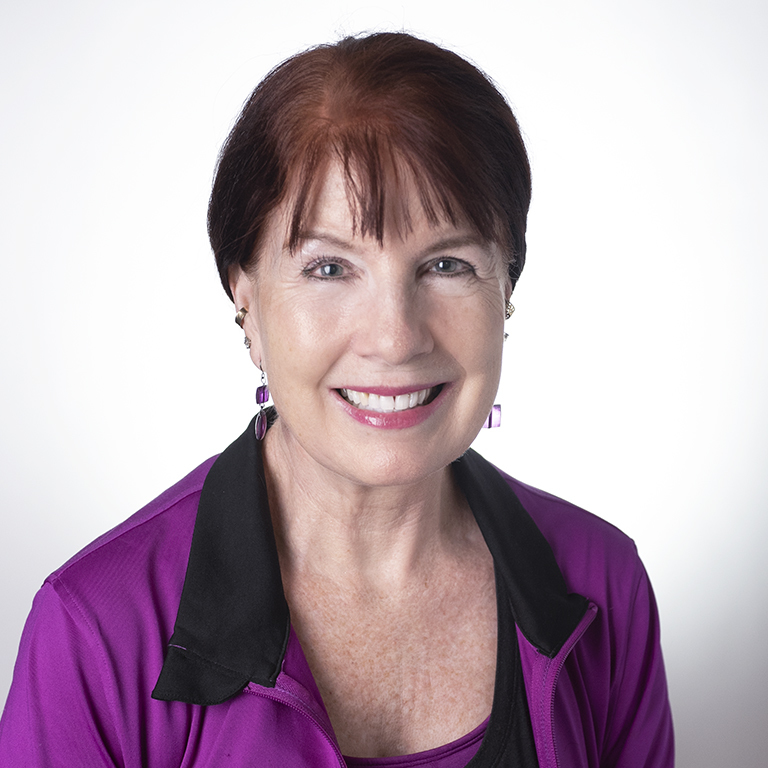
A Fellow of the American College of Sports Medicine, she earned a Ph.D. in health behavior from IU Bloomington; a Master of Arts in exercise physiology from Adelphi University; a Master of Music from Florida State University; and a Bachelor of Music from the Jacobs School of Music. She previously served as a visiting lecturer for the departments of kinesiology and applied health science in the IU School of Public Health in Bloomington.
Mary is an associate research editor and columnist for the American College of Sports Medicine’s Health & Fitness Journal and is a frequent speaker at national and international fitness conferences, having presented 49 U.S. states and 18 countries. She is also the author or co-author of four books on fitness and one on happiness. Her research interests include behavior change, the science of positivity, goal setting, physical inactivity, low-intensity physical activity, obesity, older adults, and long-term learning outcomes in the academic setting.

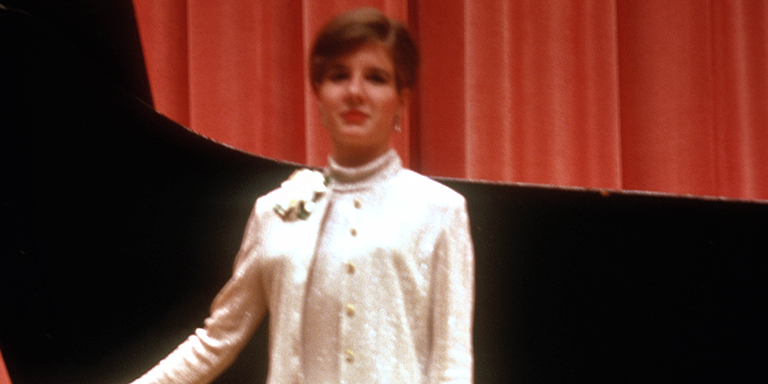
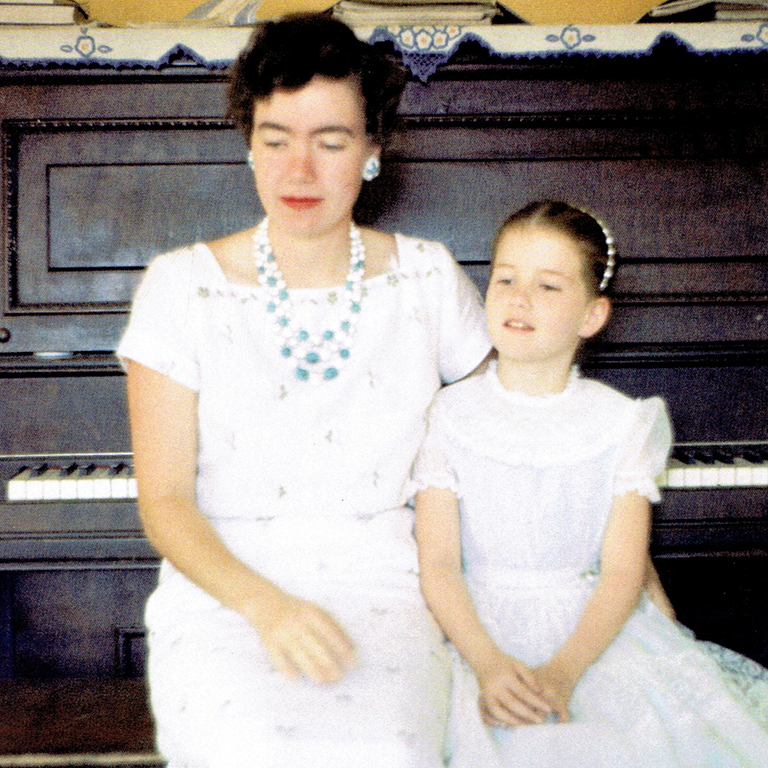
Top: Mary performed as Mimi in Puccini’s "La Bohème" in 1978 with the San Francisco Opera’s Merola Opera Program. Bottom: Mary at her IU School of Music senior recital in 1975. Right: Mary and her mother share a moment on the piano bench in 1959.
Q: What led you from the music industry to your current focus on health?
A: When I was in my 20s, I was a successful and deeply committed opera singer. Sadly, after winning two large prizes in the Merola Opera Program in 1978 (with San Francisco Opera), I began to have vocal trouble. This was absolutely devastating, and I had no idea what to do going forward. All my dreams were shattered.
I just happened to take an aerobics class in 1983 and thought that I could perhaps do better at instructing than the teacher. I got certified as a group exercise instructor, met a mentor who encouraged me to go back to school in exercise physiology, and earned a second master’s degree in 1988. This was extremely challenging, as opera singers tend to be volatile, tempestuous, and emotional (right-brained), and that didn’t always play well in the analytical exercise physiology lab (left-brained)!
I became an exercise physiologist/fitness professional for my second career and had a good long run in the NYC area as a cardiac rehab exercise test technologist, physical therapy assistant, corporate wellness director, personal trainer, group exercise leader, and international/domestic fitness certification presenter and developer. In 2017, I received a Ph.D. in public health and behavior change and have been lucky to have moved full-time into academia (third career).
Q: How do your experiences of music and health connect?
A: I’ve been doing public presentations since I was about five: first as a gifted young pianist, next as an up-and-coming opera singer, then as a fitness certification workshop presenter around the world, and now as a full-time lecturer. The show must go on!
For my first two degrees, I had a double minor: piano and ballet. I’ve always had a love of and affinity for movement. I was born with a genetic defect in my right leg that required many extensive childhood surgeries. My physically painful, disabling, and traumatic childhood has been a major factor in my quest for health and well-being. I have vowed to never experience so much pain again if I can help it. If a problem can be prevented (e.g., back pain, other types of musculoskeletal pain, heart disease), then why not work to prevent it?
Q: How do you define happiness, as opposed to, say, satisfaction or joy?
A: These concepts are all related — and often debated. Happiness is usually defined as subjective well-being in scientific literature. Some researchers write that it consists of three components:
Life satisfaction is often used as a measure of happiness; one of the most widely used assessments is the Satisfaction with Life Scale by Diener, Emmons, Larsen & Griffin. Joy is sometimes defined as elation at a moment in time.
Q: What daily activities spark the most happiness for you personally?
A: Most important for me each day: self-affirmations, gratitude practice, deep breathing and meditation, yoga, long walks outdoors in a beautiful setting, and playing the piano for at least an hour per day.
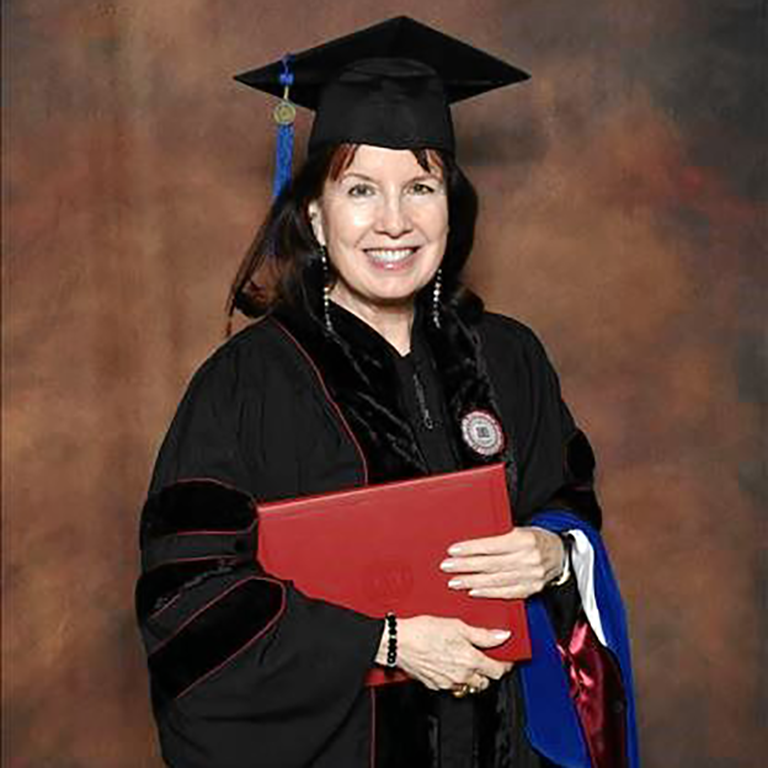
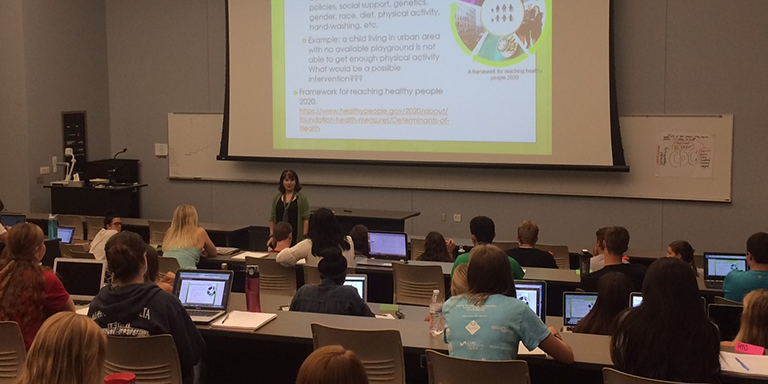
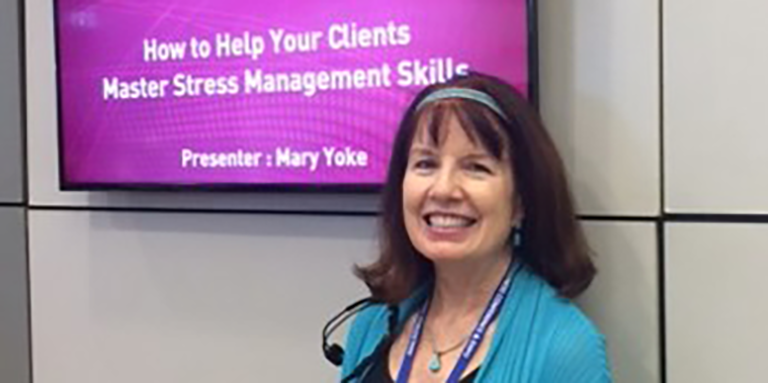
Left: Mary earned her Ph.D. and graduated in 2017. Top: Mary teaching the H235 Obesity and Health course at IU to a room of students in 2014. Bottom: In 2016, Mary traveled to Bangkok, Thailand to attend and present at the Asia Fitness Conference.
Q: Many of us find it difficult to find the appropriate balance of activity for our distinct bodies. How can learning the relationship between physical activity and pleasure help us understand and enjoy what’s most healthful for us?
A: I’ve become interested in interoception, the sensory awareness of what’s happening in the body and what bodily signals tell us. This relatively new term perfectly reflects the premise behind Kripalu yoga (the tradition in which I’ve been trained).
If we listen, our bodies send constant signals about the need to get up and move, to eat healthy foods ... However, most of us override and ignore these innate signals. I think it’s time to focus more on pleasure, and not just sexual pleasure.
Our bodies can provide us with incredible feelings of well-being, vitality, and joy.
What helps produce these feelings?
We all need to find physical activities that we truly enjoy, that are pleasurable, satisfying, and fun. And then we need to do those activities often and savor the feelings of well-being!